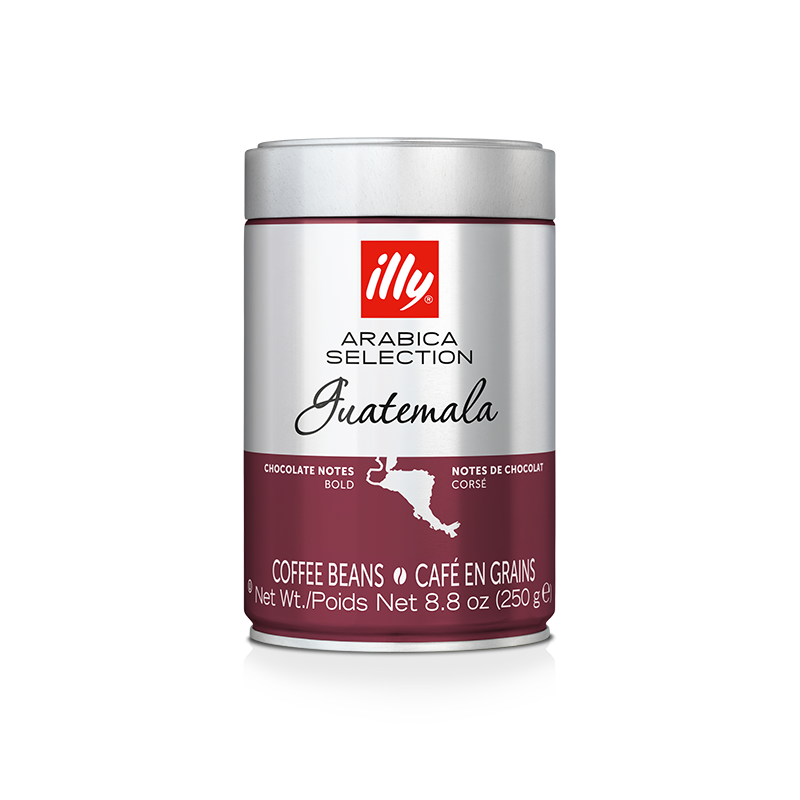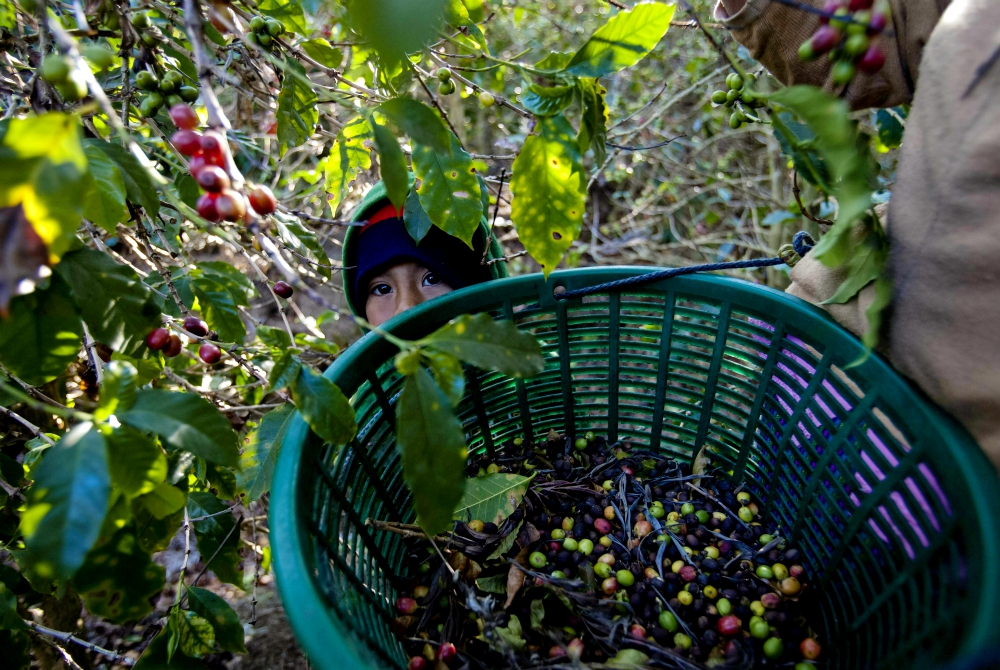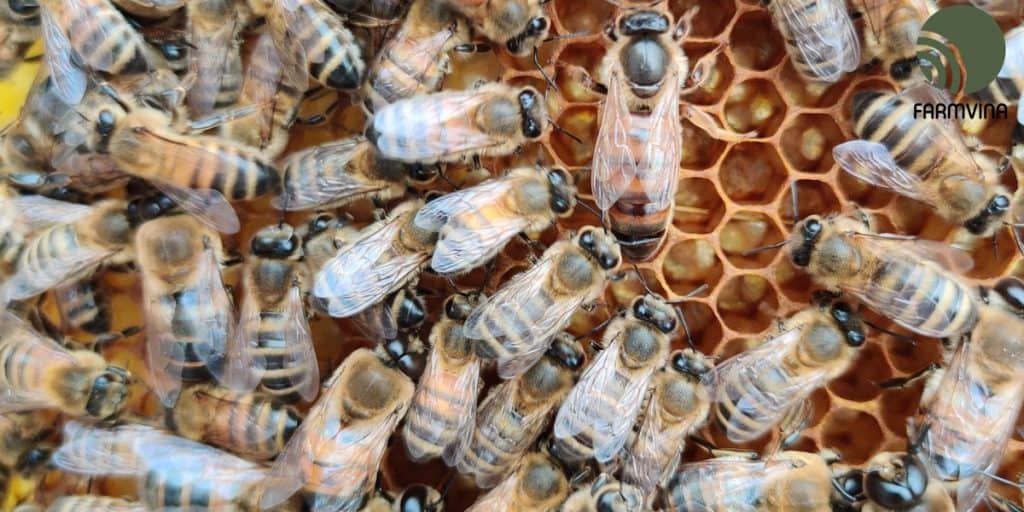tl;dr: Guatemalan coffee beans are known for their high quality and unique flavor profile.

Guatemalan coffee beans are highly regarded in the coffee industry for their exceptional quality and distinct flavor profile. Grown in the lush landscapes of Guatemala, these beans thrive in the country’s unique geographical location and climate.
In this article, we will explore the different types of coffee beans grown in Guatemala, the distinct characteristics that set them apart, popular regions known for producing Guatemalan coffee beans, the various processing methods used, fair trade and sustainability practices in the industry, how to brew and enjoy Guatemalan coffee, where to buy these beans, and conclude with a summary of their exceptional qualities.
Overview of Guatemalan coffee beans
Geographical location and climate
Guatemala, located in Central America, is blessed with ideal conditions for coffee cultivation. The country’s volcanic soil, high altitude, and diverse microclimates contribute to the unique characteristics of Guatemalan coffee beans. The regions where coffee is grown in Guatemala include Antigua, Huehuetenango, Cobán, and more. These regions offer different microclimates, resulting in a wide range of flavor profiles.
Types of coffee beans grown in Guatemala
Guatemala produces several varieties of coffee beans, each with its own distinct qualities. The most common types include Bourbon, Caturra, Typica, and Catuai. Bourbon beans are known for their sweetness and complexity, while Caturra beans offer a balanced flavor profile. Typica beans are highly aromatic and have a smooth taste, while Catuai beans are known for their bright acidity and fruity notes.
Distinct characteristics of Guatemalan coffee beans

Flavor profile
Guatemalan coffee beans are celebrated for their rich and complex flavor profiles. They often exhibit notes of chocolate, caramel, and nuts, with hints of citrus and floral undertones. The volcanic soil and high altitude contribute to the beans’ unique flavors, resulting in a well-balanced and full-bodied cup of coffee.
Acidity levels
One of the defining characteristics of Guatemalan coffee beans is their acidity. The acidity levels can vary depending on the region and processing method used. Generally, Guatemalan coffee beans have a medium to high acidity, which adds brightness and liveliness to the cup. This acidity is well-balanced and complements the beans’ other flavor notes.
Aroma
Guatemalan coffee beans are known for their enticing aroma. When brewed, they release captivating scents of chocolate, fruit, and floral notes. The aroma of Guatemalan coffee is often described as inviting and comforting, making it a delightful experience for coffee enthusiasts.
Popular Guatemalan coffee bean regions

Antigua
Antigua is one of the most renowned coffee-growing regions in Guatemala. The region’s volcanic soil, combined with its high altitude and cool climate, creates the perfect conditions for growing exceptional coffee beans. Antigua coffee is known for its full body, rich flavor, and distinct chocolate and spice notes.
Huehuetenango
Huehuetenango, located in the highlands of Guatemala, produces coffee beans with exceptional quality and flavor. The region’s high altitude and dry, hot winds contribute to the beans’ unique characteristics. Huehuetenango coffee is known for its bright acidity, fruity flavors, and floral undertones.
Cobán
Cobán, situated in the lush rainforests of Guatemala, is known for its specialty coffee production. The region’s humid climate and fertile soil create the perfect environment for growing high-quality coffee beans. Cobán coffee is characterized by its medium acidity, balanced flavor, and delicate floral and citrus notes.
Processing methods used for Guatemalan coffee beans
Washed process
The washed process, also known as the wet process, is a common method used for processing Guatemalan coffee beans. This method involves removing the outer skin and pulp of the coffee cherries before fermenting them in water. The beans are then washed and dried, resulting in a clean and bright cup of coffee with pronounced acidity.
Natural process
The natural process, also known as the dry process, is another method used for processing Guatemalan coffee beans. In this method, the coffee cherries are dried with the fruit intact, allowing the beans to absorb the flavors and sugars from the pulp. This process often results in a sweeter and more complex cup of coffee with lower acidity.
Honey process
The honey process, also known as the pulped natural process, is a hybrid method that combines elements of both the washed and natural processes. During this process, the outer skin of the coffee cherries is removed, but some of the sticky fruit pulp is left on the beans. This results in a coffee with a unique sweetness and a balanced acidity.
Fair trade and sustainability practices in Guatemalan coffee industry

The Guatemalan coffee industry is committed to fair trade and sustainability practices. Many coffee farms in Guatemala are certified by organizations such as Fair Trade and Rainforest Alliance, ensuring that farmers receive fair wages and work in environmentally friendly conditions. These certifications also promote sustainable farming practices, biodiversity conservation, and community development.
How to brew and enjoy Guatemalan coffee

Recommended brewing methods
To fully appreciate the flavors of Guatemalan coffee, it is recommended to use brewing methods that highlight its unique characteristics. Pour-over brewing methods, such as the Hario V60 or Chemex, allow for precise control over extraction and bring out the coffee’s nuanced flavors. French press brewing also works well, as it preserves the coffee’s natural oils and produces a full-bodied cup.
Pairing suggestions
Guatemalan coffee pairs well with a variety of flavors. Its chocolate and nutty notes make it an excellent companion for desserts like chocolate cake or almond biscotti. The bright acidity of Guatemalan coffee also complements citrusy flavors, making it a great choice to enjoy with a slice of lemon tart or a grapefruit salad.
Where to buy Guatemalan coffee beans

Guatemalan coffee beans can be purchased from various sources. Local specialty coffee shops often carry a selection of Guatemalan beans, allowing you to support local businesses while enjoying high-quality coffee. Online retailers and coffee subscription services also offer a wide range of Guatemalan coffee options, providing convenience and access to a broader selection.
Conclusion
In conclusion, Guatemalan coffee beans are renowned for their high quality and unique flavor profile. Grown in the diverse microclimates of Guatemala, these beans offer a rich and complex taste with notes of chocolate, caramel, and citrus.
The coffee industry in Guatemala is committed to fair trade and sustainability practices, ensuring that farmers receive fair wages and work in environmentally friendly conditions. Whether brewed using pour-over methods or enjoyed with a delicious pairing, Guatemalan coffee provides a delightful and memorable coffee experience.
So, why not indulge in a cup of Guatemalan coffee and savor the exceptional flavors it has to offer?
FAQ
What is special about Guatemalan coffee?
Guatemalan coffee is known for its high quality and unique flavor profiles. The country’s diverse microclimates and volcanic soil create ideal growing conditions for coffee beans, resulting in a rich and complex taste.
Why is Guatemalan coffee so good?
Guatemalan coffee is considered to be of exceptional quality due to several factors. The country’s high altitude, volcanic soil, and meticulous cultivation practices contribute to the coffee’s superior taste. Additionally, Guatemalan coffee farmers often employ traditional and sustainable farming methods, further enhancing the overall quality.
Does Guatemala have good coffee?
Yes, Guatemala is renowned for producing some of the finest coffees in the world. The country’s coffee industry has a long history and is known for its commitment to quality and sustainability. Guatemalan coffee consistently receives high ratings and is highly sought after by coffee enthusiasts.
Are Guatemala coffee beans Arabica or robusta?
Guatemala primarily cultivates Arabica coffee beans. Arabica beans are known for their superior quality and desirable flavor characteristics. The country’s unique microclimates and growing conditions are particularly suitable for Arabica cultivation, resulting in high-quality coffee beans.
Originally posted 2023-04-23 14:43:37.


For me, Guatemalan coffee beans are among the best beans that we can find on this planet! Rich in aroma, deep in taste – what you can ask for?
@Cyrus: We share the same thought!